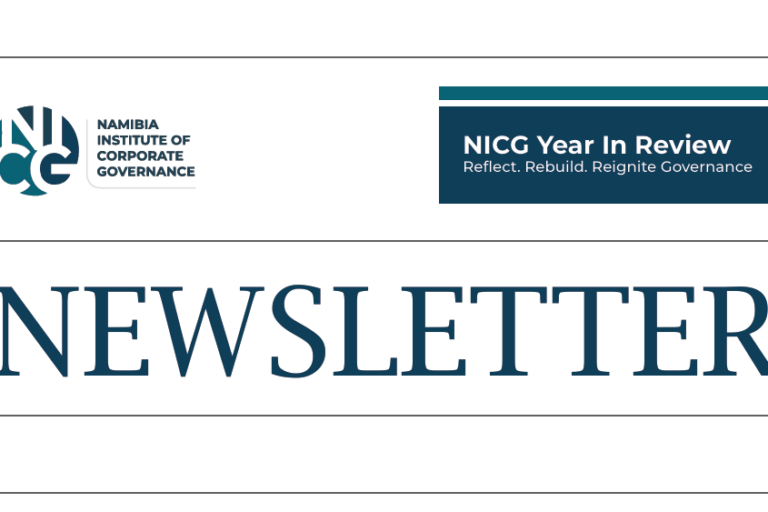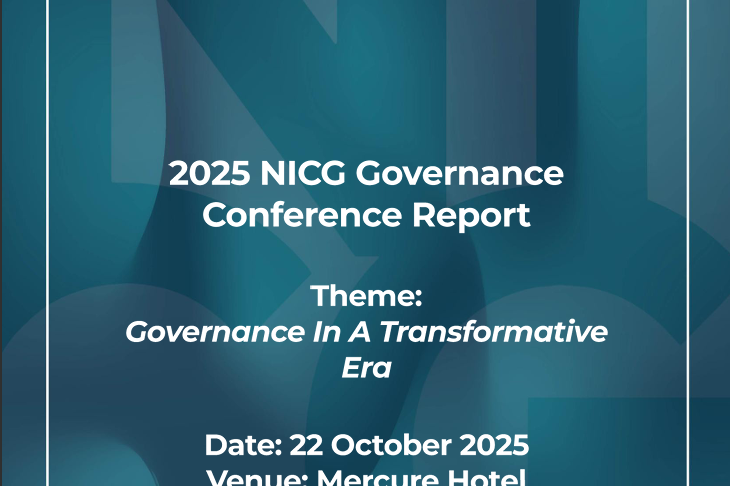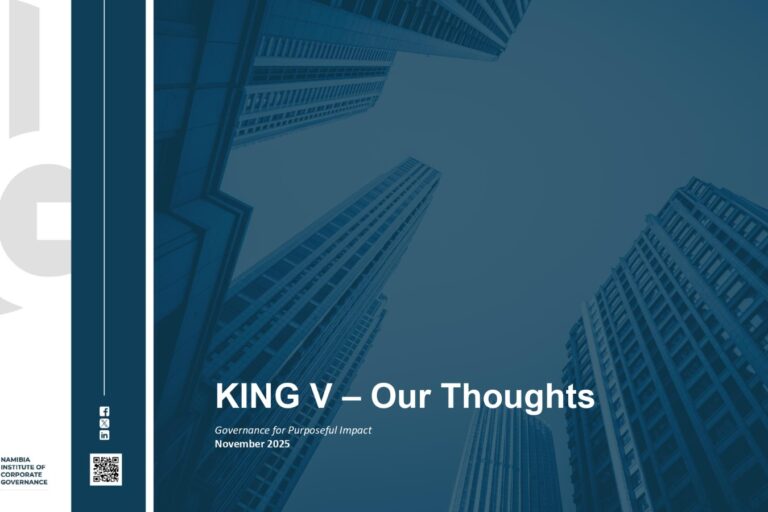As the Institute embarks on the next phase of the journey of advocating, entrenching and protecting good corporate governance in all organisations and governing bodies, we rely on the solid foundations established by the first board of directors under the visionary leadership of Escher Luanda and Libertha Kapere.
We also rely on the firm commitments made to best practice in governance at the national level in national development plans and in the Harambee Prosperity Plan II(2021-2025). We are privileged to have amongst our founder members some of the best examples of good corporate governance practice anywhere in the world. We intend to cascade this best practice through the business, governmental enterprise and non-governmental organisation segments in Namibia, including to small-, medium- and micro-organisations and community structures through office bearers on all governing bodies.
If we define corporate governance, as King IV does, as “The exercise of ethical and effective leadership by the governing body towards the achievement of the following outcomes: Ethical Culture; Good Performance; Effective Control, and Legitimacy”, then these outcomes can be applied to any organisation and its leadership.
In addition to the shifts to outcomes-based governance in modern best-practice, the entrenchment of ethical values and practice have become the cornerstone of good corporate governance. The move away from the primacy of the shareholder to stakeholder-centricity have further built on the African tenets of community values as described by the concept of ‘’Ubuntu’’ in African leadership doctrines and governance codes over the past few decades. In very simple terms, these tenets teach us ‘’to do the right thing- do as your community elders expect of you, which actions your children and their children would be proud of’’. By doing this we will leave a better world than the one we found.
The accelerating alignment and integration of financial and sustainability accounting and reporting standards and practice has heralded possibly the most significant nexus for corporate governance in a generation. It is our privilege and responsibility to be the custodians of best practice in Namibia during this watershed period. The tidal wave of ’’ESG’’ we see breaking around the globe provides the unique opportunity to embrace one comprehensive global standard for sustainability, while at the same time hopefully creating the flexibility to implement regional and national imperatives in each of the Environmental, Social and Governance factors which are appropriate to local circumstances.
At the Namibian Institute of Corporate Governance we will continue to champion corporate governance leadership and the advocacy, custodianship and implementation of best practice for the benefit of all our stakeholders.



















































